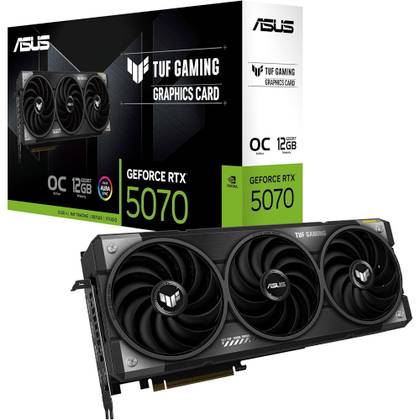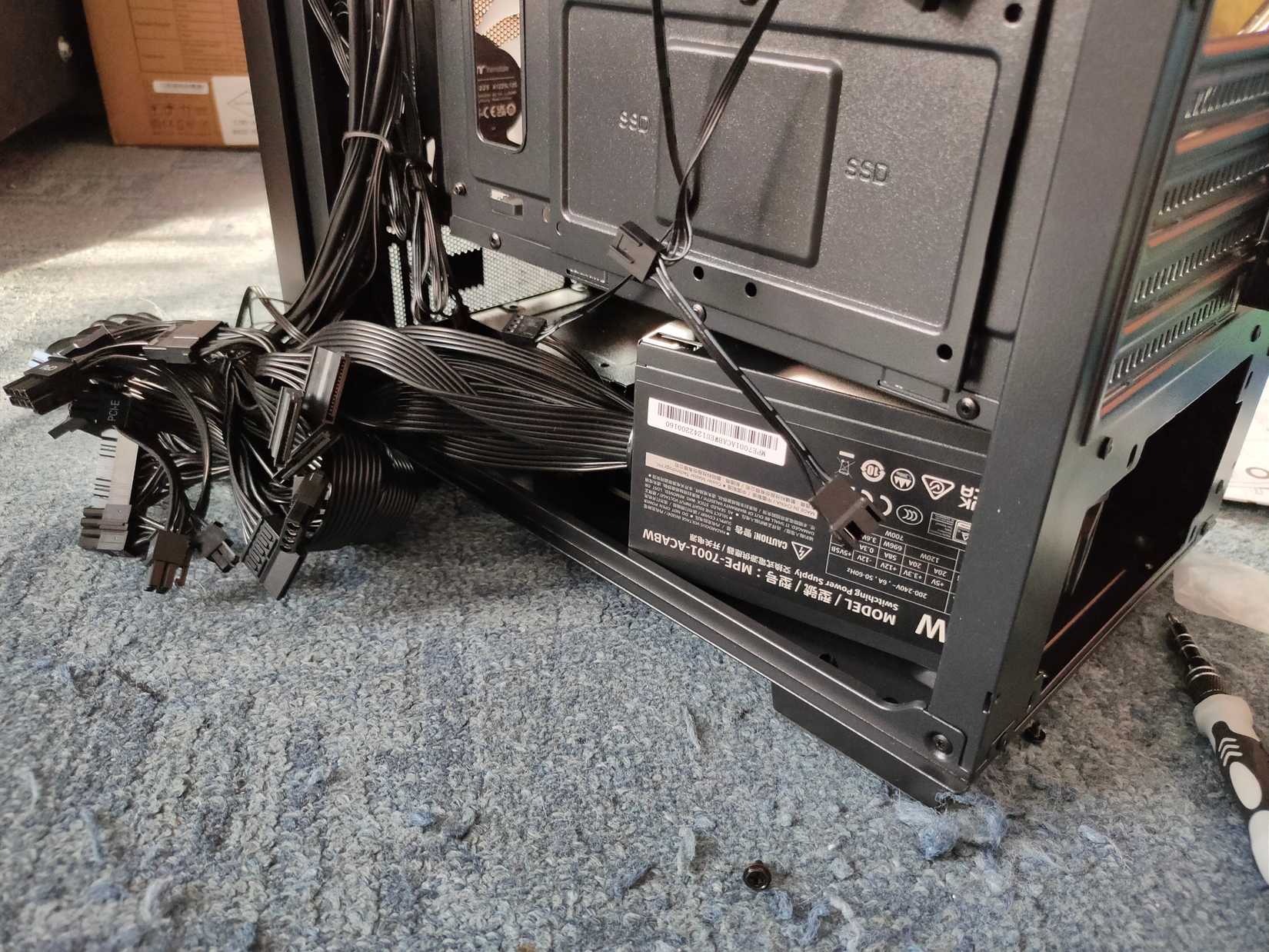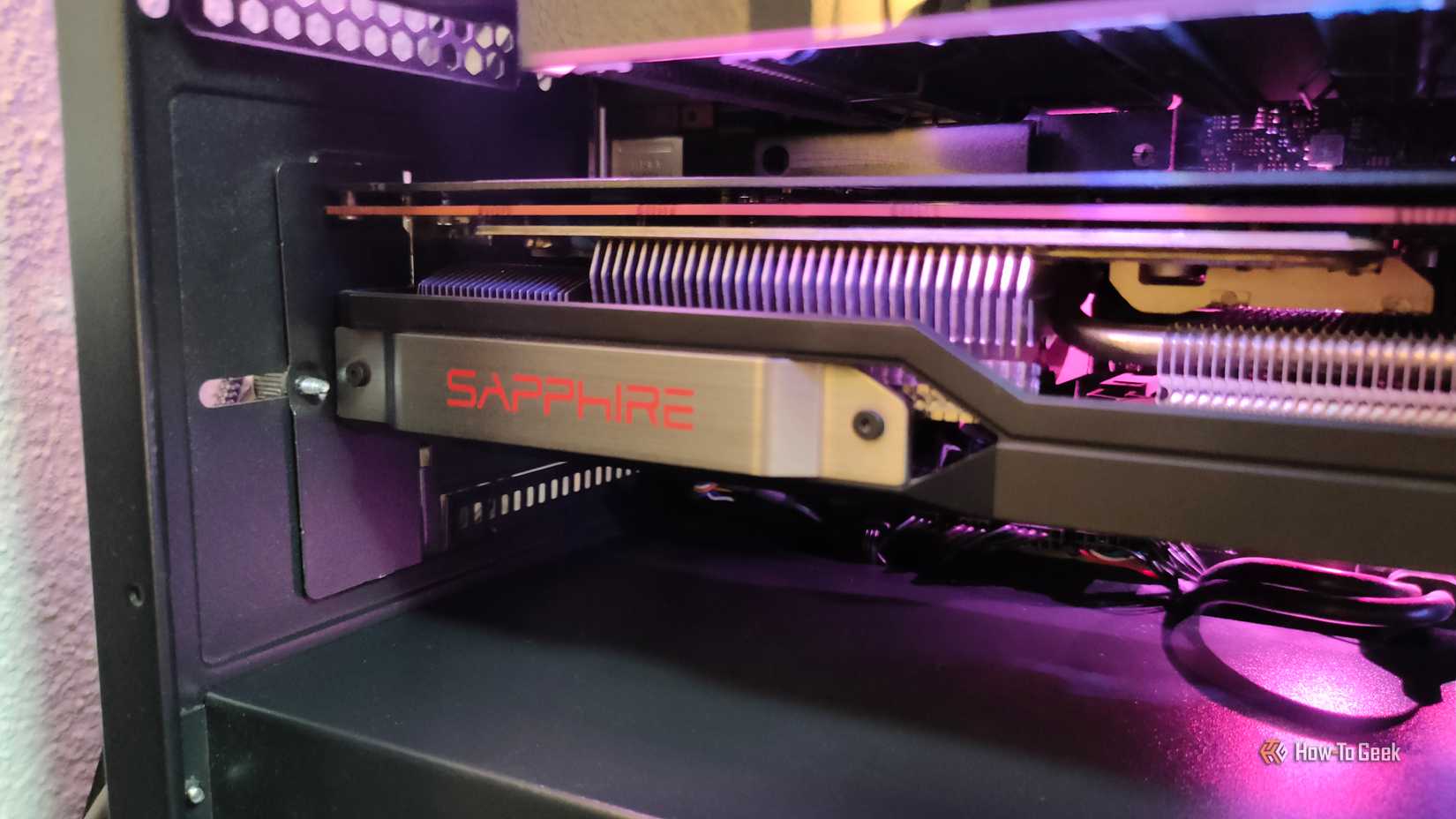The biggest advantage that gaming PCs have over other platforms and form-factors is upgradability, but what should you upgrade first, and how much of a difference will it make?
That’s a common question among PC gaming newbies, so I’ve ranked the five most impactful upgrades from least to most bang for your buck.
5
Cooling and Power Supply
It’s important to have adequate cooling and power for your gaming PC, but upgrading your power and cooling will only have an impact on your PC’s performance if it is overheating or unable to pull all the power it needs to perform at its peak. In most cases upgrading your power and cooling won’t directly affect your performance unless you’re overclocking, but it is a good way to improve the stability and efficiency of your system.
It’s best to have a power supply that isn’t running at the edge of its capacity, but at its efficiency sweet spot when under load. So that you’re not wasting too much power as waste heat. Upgrading your cooling can potentially allow your CPU and GPU to reach higher boost clocks up to a point, but a bigger advantage is decreasing the noise with quieter cooling, without losing cooling capacity or performance.
For me, nothing spoils my gaming experience more than a noisy computer, and that’s why I’m forced to use noise-canceling headphones with my gaming laptop. So while this doesn’t make your games run faster in most cases, it can have a significant impact on your enjoyment of said games.
4
Storage (SSD/NVMe)
How much impact a storage upgrade has on your gaming setup depends on where you’re coming from. If you’re running your operating system or games from a mechanical hard drive, then upgrading to any type of SSD will have a dramatic effect on how fast and snappy your entire system is. However, if your computer is still using a mechanical drive as its main storage, the rest of it is probably quite out of date from a gaming perspective.
If your gaming PC uses a SATA SSD then upgrading to the latest NVMe drives won’t be quite as impactful. The vast majority of games have not been coded to take full advantage of NVMe drives, though the latest games that have current-generation console versions do benefit tangibly. Some of games might require an NVMe SSD, but none require the fastest or latest drives. If you’re using an NVMe drive with transfer speeds of 3.5GB/s or more, then you’re pretty much getting the best experience in games and there’s no need to fork out money for faster and more expensive drives for gaming specifically.
Basically, I’d recommend sticking with mid-range speeds in the world of NVMe drives and spend the savings on a mid-range drive with a larger capacity.
- Storage capacity
-
1TB, 2TB, 4TB
- Hardware Interface
-
M.2 NVMe
- Brand
-
Crucial
3
RAM
RAM, or Random Access Memory, is the fast working storage space in your computer where data lives your CPU is actively working with. As with secondary storage like SSDs, there are two factors when it comes to RAM: speed and capacity. The capacity part of the equation is pretty easy to solve. The vast majority of games require no more than 16GB of RAM to perform their best, but newer games have started recommending 32GB. Part of the reason for this is caching on PCs with slower storage, since PCs don’t yet have universal high-speed storage and the special hardware acceleration to make it all work. Technologies like DirectStorage are changing this, but you need a specific mix of hardware and games have to support it.
So the bottom line is that if you have 16GB of RAM, you’re probably OK, but I’d recommend 32GB of RAM for general audiences, not just gamers.
When it comes to RAM speeds, things are more complicated. How much of an impact the speed of your RAM has on game performance really depends on the type of game it is and what frame rate it’s running at. At pedestrian performance levels like 60fps there may be no difference between different RAM speeds in a given game, or if a game is designed in a way that doesn’t lean on rapidly transferring data in and out of RAM, it’s also unlikely to make a difference.
For me, the rule of thumb here is to get the fastest RAM that my motherboard and CPU combo can handle, but obviously you should take the price into consideration. If you’re running DDR3, well that’s a system that needs to be effectively replaced to be brought up to date. If you’re running a DDR4 system, upgrade speed to the most you can afford if you’re going to upgrade the capacity anyway, but you’re still good to go on any games in the RAM department.
If you’re running a DDR5 system, your RAM is probably fine at the speed it already runs, you might just want more of it.
2
CPU (Processor)
Many gamers are a little confused about the role their CPU plays in gaming performance. After all, games seem to be mostly graphical at first glance, but the truth is the CPU is involved in just about everything that happens in a game. The AI, physics, and prep work for the GPU to do its job are all dependent on the CPU. Even ray-tracing, the latest in graphics technology, relies on your CPU to do a big chunk of the work.
What’s worse, unlike graphics, you can’t really scale the CPU-bound parts of a game down, since they are the core of the experience. It’s not like you can set your characters to be half as smart to save on CPU cycles without changing the fundamental game.
Upgrading your CPU means setting the cap on your maximum frame rate at a certain resolution. Ideally, you want your frame rate to be limited by your GPU, and not your CPU. So a powerful processor will have a broad and profound impact on maximum game performance, as well as how smoothly it runs. Video games still don’t take great advantage of having many cores, so if your computer is only for gaming or that’s your main goal, I’d say aiming for an eight-core (that’s eight performance cores) CPU is optimal. Then try to get a model with the highest single-core speed and largest cache for your budget.
Buying a powerful CPU early on lets you upgrade to future GPUs without also having to upgrade your CPU, and has a powerful impact on just about every performance area of your games.
1
Graphics Card (GPU)
As you might expect, the one component that has the largest impact on video game performance is the graphics card. This component determines the resolution, complexity, and (assuming your CPU can keep up) frame rate of your games. When you upgrade your GPU, assuming all your other components aren’t bottlenecks, all of your games get an immediate improvement in performance and the level of visual candy you can achieve.
Picking the right GPU can be quite complicated, but my advice is to look at the recommended GPUs for the games you want to play, at the settings you want to play, and use that as a basis. The only nearly-universal advice I can give here is to completely avoid 8GB graphics cards.
Of course, this ranking doesn’t just matter for upgrading, but when putting together a new system, so you can concentrate your budget on the most important components first, to get the best bang for your buck. So, instead of wasting money on RGB lighting or pointless, expensive SSD speeds, you get the most performance where it really matters.

- Graphics RAM Size
-
12GB
- Brand
-
ASUS
- Architecture
-
NVIDIA Blackwell





